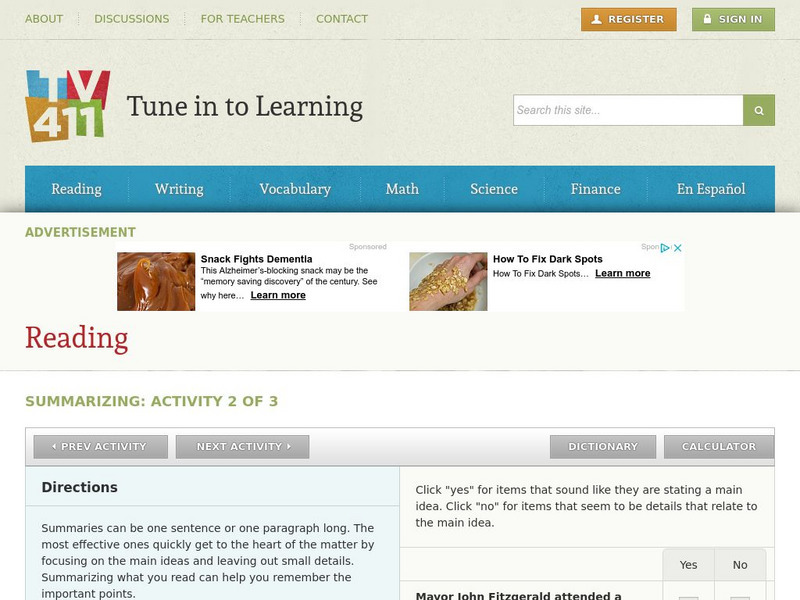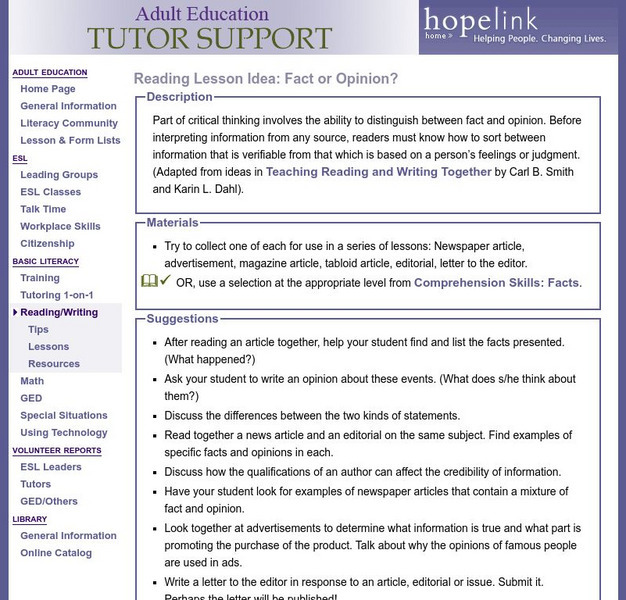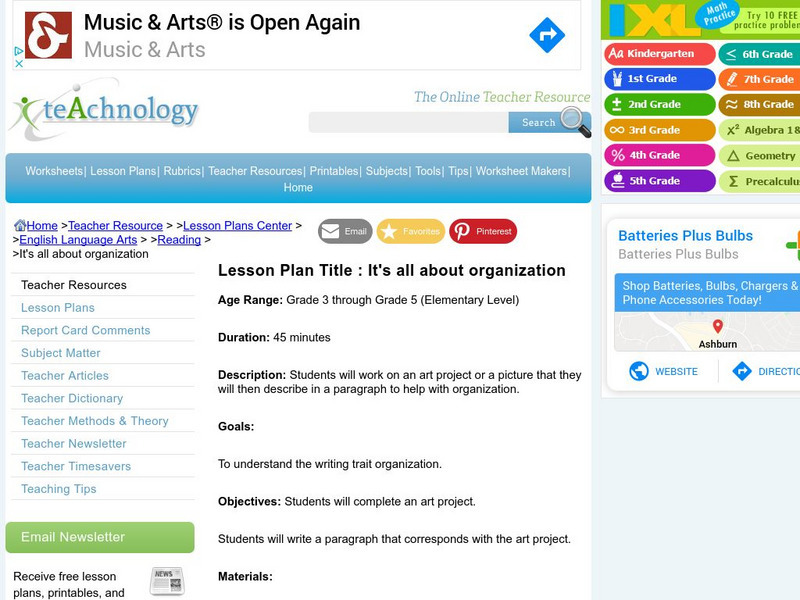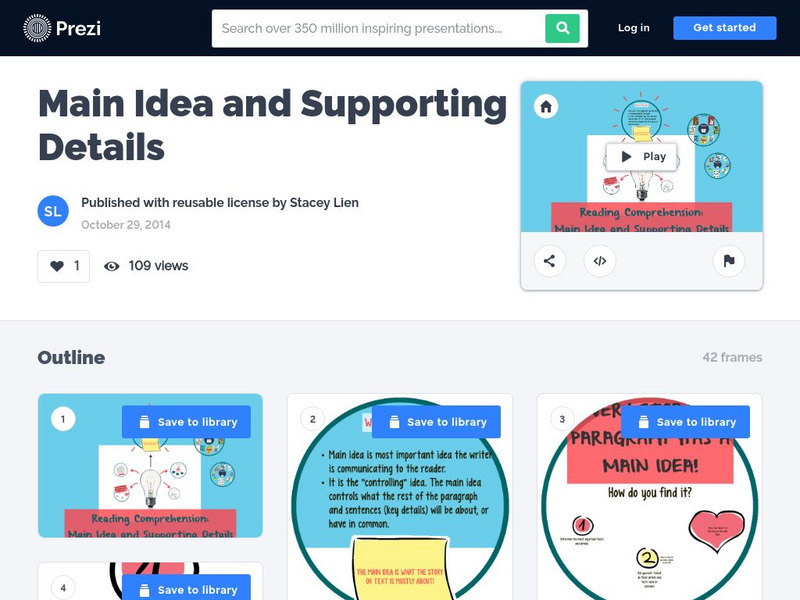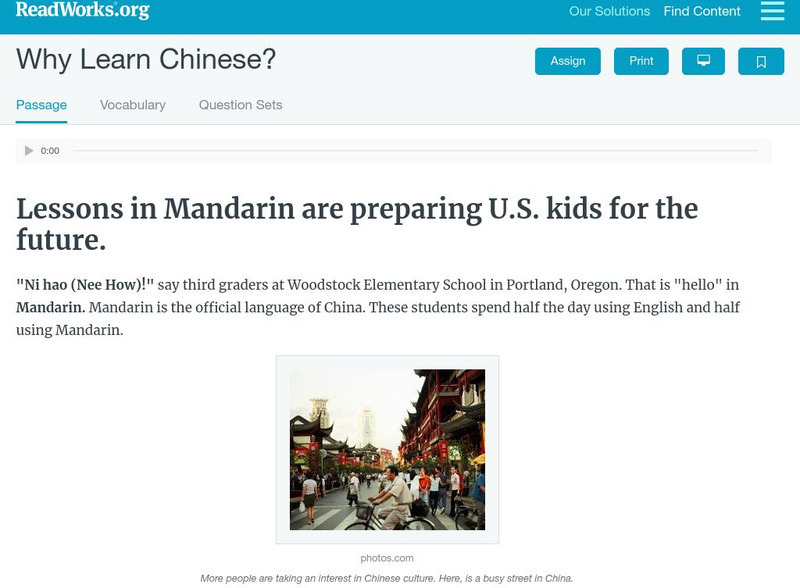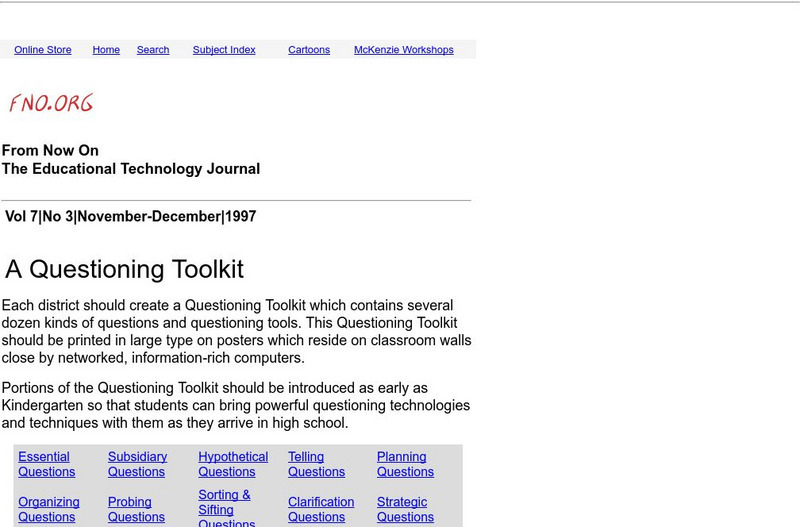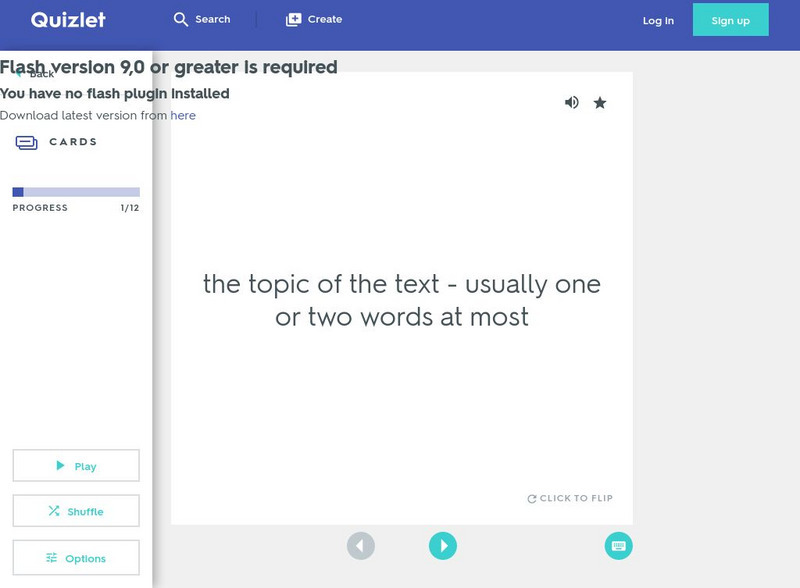ReadWriteThink
Read Write Think: Applying Question?answer Relationships to Pictures
Contains plans for two lessons that develop students' ability to ask questions about the pictures in a text. In addition to objectives and standards, this instructional plan contains links to sites used in the lessons as well as...
Other
Live Worksheets: Question Words
This interactive worksheet features interrogative sentences with missing question words. Students will type in one of following words or phrases into each sentence: who, what, where, why, when, how, and more. Students will then submit...
ReadWriteThink
Read Write Think: Guided Comprehension: Self Questioning
Online lesson introduces students to the concept of self-questioning, assisting them in an understanding of question-answer relationships that should improve their reading comprehension skills. In-depth study will lead to improved...
Education Development Center
Tv411: Summarizing Activity 2
This activity asks students to differentiate between main ideas and supporting details.
Hopelink
Hopelink: Reading Lesson Idea: Fact or Opinion?
In this lesson, students must learn to recognize the differences between fact and opinion.
ReadWriteThink
Read Write Think: Talking About Books to Improve Comprehension
This lesson is a conversation-starter! In this lesson, students learn about striking up deep-thought conversations and staying on topic in the form of a book talk.
Other
Literature Circles Resource Center: Teaching Students How to Discuss
Teachers are given strategies and hands-on approaches to help students prepare for a discussion and participate as active members of it.
Teachnology
Teachnology: Lesson Plan: It's All About Organization
In this lesson, third through fifth graders learn to organize their writing to form a cohesive paragraph. They began by making an art project such as a drawing; then they write sentences describing their art, and write an organized...
Read Works
Read Works: Comprehension Units
[Free Registration/Login Required] Reading comprehension units for grades kindergarten through fifth grade are available on this site. Units consist of read aloud questions and paired passages. Multiple Lexiles are shown, along with...
TES Global
Blendspace: Personal Narrative Writing 3.w.3.3
A twelve-part learning module with links to images of notes, web sites, and videos that teach students how to write a personal narrative.
Other
Prezi: Main Idea and Supporting Details
Slideshow investigates how to find the main idea and key details of a story.
Other
Thoughtful Learning: Minilesson: Asking and Answering the 5 W's and H Questions
Students will learn the "5 W's and H questions" needed to comprehend a news story. Then students will apply these question words [who, what, where, why, when, and how] to real news stories and to events in their own lives.
Read Works
Read Works: Why Learn Chinese
[Free Registration/Login Required] Students read about why some third-graders are learning to speak Mandarin. A question sheet is available to help students build skills in drawing conclusions.
Mind Tools
Mind Tools: Problem Solving Skills
Discover the four basic steps in problem solving: defining the problem, generating alternatives, evaluating and selecting alternatives, and implementing solutions. The first step, defining the problem, is discussed in detail. Links to...
Read Works
Read Works: Main Idea 4th Grade Unit
[Free Registration/Login Required] A two-lesson unit on main idea and details through which young scholars use the topic sentence to identify the main idea of a paragraph and categorize details as main idea or supporting. With free...
Education Development Center
Tv411: Summarizing: Activity 3
In this activity, students choose the correct category to which details belong. Being able to categorize helps students to identify the difference between main ideas and details.
FNO Press
From Now On: A Questioning Toolkit
What exactly is a "questioning tool kit"? This resource provides techniques for asking essential questions, hypothetical questions, telling questions, planning questions and organizing questions.
Other
Storytelling to Assess Speaking and Listening
An effective use of rubrics that encourages the student storyteller how to determine if his/her audience is listening. Learn about the different listening skill rubrics, storytelling rubrics and a self-assessment guide that asks the...
CommonLit
Common Lit: Why the Sky Is Far Away
CommonLit.org is a wonderful resource to use in a Language Arts classroom. Each story or article is accompanied by guided reading questions, assessment questions, and discussion questions. In addition, students can click on words to see...
CommonLit
Common Lit: Dragonfly
CommonLit.org is a wonderful resource to use in a Language Arts classroom. Each story, article, or poem is accompanied by guided reading questions, assessment questions, and discussion questions. In addition, students can click on words...
Read Works
Read Works: Implicit Effects
[Free Registration/Login Required] Students will listen to this read aloud story and listen for cause and effect relationships in order to better understand the story.
Quizlet
Quizlet: Main Idea, Main Idea Flashcards
Terms related to main idea are included in this review exercise. Interactive vocabulary flashcards are provided for the following words: main idea, central idea, interesting detail, subject, topic, support, supporting detail, theme, and...
Better Lesson
Better Lesson: W.3.1: Write Opinion Pieces on Familiar Topics or Texts
Links to 37 lessons that focus on skills within third grade reading standard W.3.1.
Better Lesson
Better Lesson: Rl.3.10: By the End of the Year, Read and Comprehend Literature
Links to 25 lessons that focus on skills within third grade reading standard RL.3.10.





